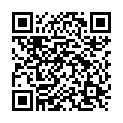|
|
|
| Module code: DFITM-W-06 |
|
4SU (4 hours per week) |
|
5 |
| Semester: according to optional course list |
| Mandatory course: no |
Language of instruction:
English |
Assessment:
Project work (Can be repeated annually)
[updated 04.09.2023]
|
DFBTO-W-04 (P620-0535) International Tourism Management, Bachelor, ASPO 01.10.2018
, semester 5, optional course
DFITM-W-06 International Tourism Management, Bachelor, ASPO 01.10.2020
, optional course
BITM-W-06 (P440-0077) International Tourism-Management, Bachelor, ASPO 01.10.2013
, optional course
BITM-W-06 (P440-0077) International Tourism-Management, Bachelor, ASPO 01.10.2015
, optional course
BITM-W-06 (P440-0077) International Tourism-Management, Bachelor, ASPO 01.10.2017
, optional course
BITM-W-06 (P440-0077) International Tourism-Management, Bachelor, ASPO 01.10.2020
, optional course
Suitable for exchange students (learning agreement)
|
60 class hours (= 45 clock hours) over a 15-week period.
The total student study time is 150 hours (equivalent to 5 ECTS credits).
There are therefore 105 hours available for class preparation and follow-up work and exam preparation.
|
Recommended prerequisites (modules):
None.
|
Recommended as prerequisite for:
|
Module coordinator:
Prof. Dr. Kerstin Heuwinkel |
Lecturer: Prof. Dr. Kerstin Heuwinkel
[updated 03.12.2020]
|
Learning outcomes:
After successfully completing this module, students will:
- be familiar with the terminology of cultural management and have a basic understanding of the interrelationships in the quotation management of companies, organizations and public institutions in the culture sector
- be familiar with marketing concepts in the culture sector
- be able to apply strategic planning and operational implementation for companies, organizations and public institutions in the culture sector
- be able to describe different concepts in cultural management and apply them to concrete case studies (e.g. industrial culture, sponsoring, museums as the heart of tourist tours, between tradition and modernity, culture for different target groups)
- be able to evaluate cultural tourism offers with regard to sustainability,
- have communication skills and be able to present their results using presentation techniques,
- be able to apply their communication skills in international teams and take cultural differences into account.
[updated 04.09.2023]
|
Module content:
- Basics of culture management
- Quotation management for companies, organizations and public institutions in the cultural sector
- Conception, marketing (presentation) and implementation of events in the
cultural sector.
- Analysis, strategic planning and operative implementation of marketing instruments for companies and public institutions in the cultural sector
- Marketing mix instruments (product, price, communication, distribution
and process policy) in a regional, national, international and inter
and intra-cultural context
- Sustainable cultural management
[updated 02.12.2025]
|
Teaching methods/Media:
- Seminar with blended mobility
- Case studies
- Project work (independent development of a concept and its presentation)
- If applicable, excursion and joint workshop with our partner university, Universidad de Vigo in Spain
[updated 04.09.2023]
|
Recommended or required reading:
Dreyer, A., & Antz, C. (Hrsg.) (2020). Kulturtourismus. Berlin: De Gruyter.
Du Cros, H., & McKercher, B. (2020). Cultural tourism. London: Routledge.
Getz, D. (2008). Event tourism: Definition, evolution, and research. Tourism Management, 29(3), 403–428.
Hansen, K. P. (2011). Kultur und Kulturwissenschaft: eine Einführung. Tübingen: Francke.
Heuwinkel, K. (2023). Tourismussoziologie. 2. A. München: UTB.
McKercher, B., & Du Cros, H. (2002). Cultural tourism: The partnership between tourism and cultural heritage management. New York: Haworth Hospitality Press
Richards, G. (Hrsg.). Cultural Tourism in Europe. Wallingford: CABI.
Steinecke, A. (2007). Kulturtourismus. Marktstrukturen, Fallstudien, Perspektiven. München: Oldenbourg.
UNWTO (World Tourism Organization) (2018). Tourism and Culture Synergies. Madrid: UNWTO Publications.
[updated 04.09.2023]
|

